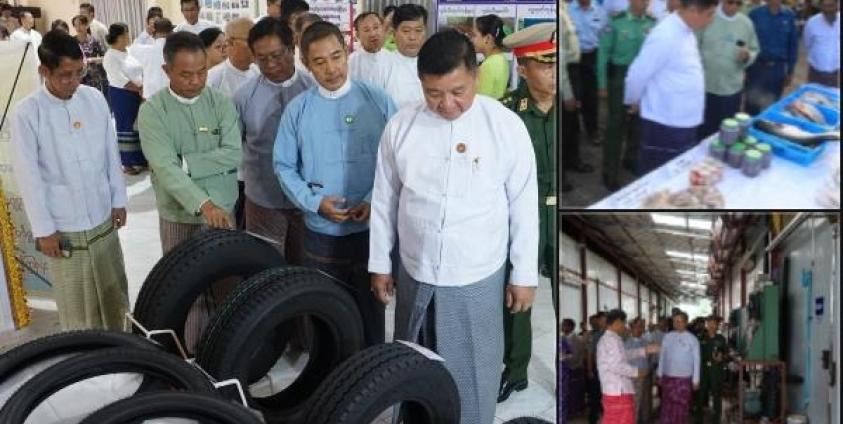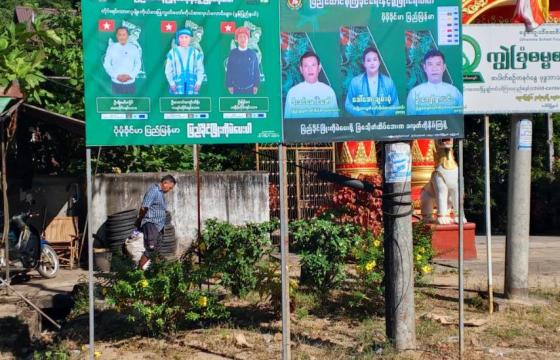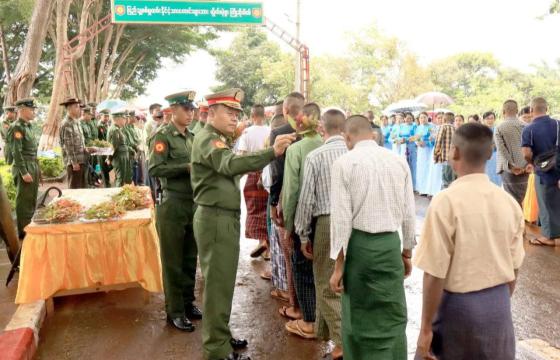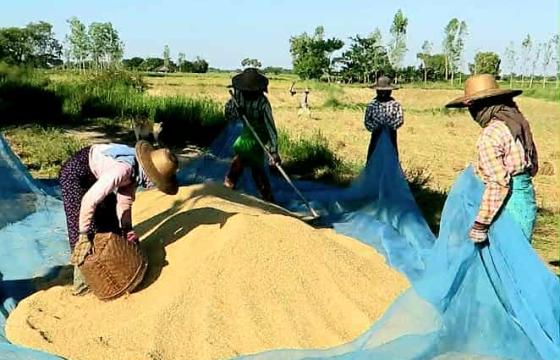The junta-appointed Mon State Chief Minister, U Aung Kyi Thein, said that Mon State must prioritise increasing its gross domestic product (GDP) and developing the state’s three main economic sectors, agriculture, industry and service.
He made the comment whist chairing a working meeting focused on achieving project goals, boosting GDP and increasing productivity during the 2024 to 2025 fiscal year, that was held in the Mon State capital of Mawlamyine, on 2 December 2024.
U Aung Kyi Thein said that for the state’s GDP to rise it is essential to improve productivity in the agriculture sector, the most important of the three major economic sectors. Only then will the other two sectors, industry and service, be able to grow.
He said that the State Economic Development Fund is currently providing loans to finance the expansion of agriculture and livestock businesses which should noticeably increase Mon State’s GDP.
He has directed the relevant authorities to to provide loans to small and medium enterprises (SMEs), including businesses registered as small industries and those operating with municipal permits, that require capital to increase production.
But, despite his claims that GDP will be boosted, local businessmen in Mon State are struggling to maintain their current businesses rather than expand as they grapple with high costs and daily, hours-long power outages.
A businessman in Mon State highlighted that the region has a low manufacturing capacity, and that GDP can only increase if the prices of local products rise. However, he argued that there is little reason for Mon State's GDP to grow given the current weak trade activity and lack of foreign investment.
He said: “The main products of Mon State are rubber and fishing, with a small amount of salt production. However, none of these industries are currently thriving, and the border trading routes are not very active. There has been no significant improvement in other economic sectors as well, and foreign investment remains very low. Therefore, in my opinion, there are not many factors that will drive an increase in Mon State's GDP.”
He added that despite the junta's attempts to boost Mon State GDP, import prices are extremely high, production costs are high and the prices of local products are rising, which is reducing demand for goods and hampering production.
Another Mon State businessman said that he believes there are no reasons for an improvement in Mon State's GDP under current conditions, as businesses face numerous challenges, including excessive tolls for transportation and logistics and a lack of free trade opportunities.
He said: “There are major challenges, especially in the logistics and transportation sectors, where unnecessary tolls and taxes are prevalent. These tolls and taxes significantly impact GDP growth. Moreover, there are too many restrictions on free trade in the current environment. Therefore, demanding an increase in Mon State's GDP under these conditions is illogical.”
He explained that manufacturing new local products requires not only capital and raw materials but also human resources; however, the junta-enforced conscription law has forced many able-bodied young people to leave the country, which makes it difficult to recruit the necessary workers.
According to a late 2023 International Food Policy Research Institute (IFPRI) survey, 40 per cent of Myanmar households have seen a decline in income, conditions are worsening and uncertainty about the future is growing.






